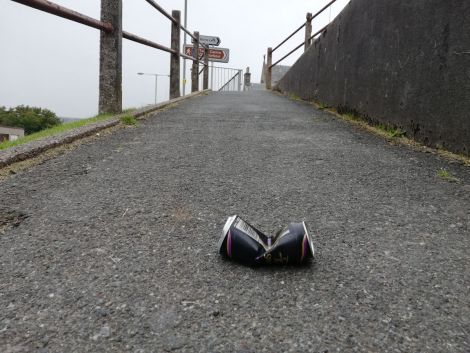News / More discussion on overprovision of booze
THE ISSUE of whether there is an overprovision of alcohol in Shetland has been up for discussion again – but there is still no consensus on whether it needs to be embedded in local policy.
Shetland Islands Council’s licensing board and the isles’ licensing forum met up at the Lerwick Town Hall on Tuesday morning to discuss the matter as the board continues to consider whether any overprovision needs to be included in its next licensing policy refresh.
Licensing board members said in July that they needed more talks before making a decision.
It was reiterated at Tuesday’s meeting that a statement of overprovision would not stop businesses gaining an off sales licence, nor would it strip any of their permit.
Instead, it would ensure new applicants would have to do more to persuade the board to give it a licence.
NHS Shetland public health principal Elizabeth Robinson repeated the health board’s view that there are too many off licences in Lerwick and that the link between alcohol abuse, accessibility of drink and the impact on health cannot be ignored.
She likened the issue to the initial objections to seatbelt laws in the 1970s as critics bemoaned a lack of personal choice – but now the rules are accepted as the norm.
Robinson added that off sales was the focus of the health board’s concerns as alcohol measures in pubs and restaurants were more regulated.
Chief inspector Lindsay Tulloch agreed with Robinson and suggested the licensing board needs to recognise that alcohol abuse in communities could affect the Shetland Partnership Plan in reaching some of its goals.
“It needs to be addressed,” he said, before saying that work needs to be done on figuring out the best way to do that.
Valerie Adamson of support group Shetland Families Affected By Alcohol and Drugs said she had first-hand experience of the impact of alcohol because her mother had been taken to hospital as a result of her drinking.
Become a member of Shetland News
Highlighting a need for licence holders to be more responsible, she also said her mum had fallen into the door of an off licence, was served and also then helped into a taxi.
Licensing board chairman councillor Ian Scott said it was his personal view that drug and alcohol misuse is a “social cancer”, but he said he was not sure picking out Lerwick would be beneficial.
“I’m not too convinced say for instance putting Lerwick under a constraint will help people in Scalloway or Brae,” he said.
Tulloch later added: “We are not trying to constrain anything – it’s the bigger picture.”
Chairwoman of the licensing forum and manager of Da Wheel Bar Debbie Leask said she had heard of people having to change their route home because if they saw a shop selling drink then they would likely succumb to temptation.
Town councillor Stephen Leask suggested that Lerwick’s two supermarkets account for most alcohol sales, and added that the “horse has already bolted” when it comes to affecting change in provision.
“There’s an over consumption and that’s the problem we have to look at,” he said.
Leask – who claimed evidence shows that Shetland has one of the worst problems with alcohol in the country – also said there has been a shift in the way people drink, from younger people “pre-loading” with alcohol before going out to slogans like “wine o’ clock” being used by older folk.
Erik Burgess, who co-runs Lerwick cafe/bar The Dowry, agreed with Leask and added that older people want something extra on a night out these days, such as good food – something which Orkney caters better for than Shetland.
Burgess added that in Europe drinking is more of a “lifestyle” whereas in Britain people often want to get as “smashed” as they can.
NHS Shetland drugs and alcohol development officer Wendy McConnachie commented that that in terms of off sales, drink is “becoming as accessible as a loaf of bread”.
Shetland member of the Scottish Youth Parliament Sonny Thomason added his view that drinkers will always find a way to source booze.
Bryan Peterson of Shetland Arts, which runs Mareel, said it makes “logical sense” for there to be a causal link between alcohol accessibility and health, but he questioned if there was hard evidence at hand.
Robinson said that there is behavioural evidence to show that people may end up buying alcohol in a shop if they see it in front of them – even if they did not intend on purchasing it in the first place.
North mainland councillor Alastair Cooper, meanwhile, said more focus should be placed on educating young people about the dangers of drink.
The hour-long discussion will be used by the licensing board as it prepares its licensing statement for the next three years this autumn.
Become a member of Shetland News
Shetland News is asking its readers to consider paying for membership to get additional perks:
- Removal of third-party ads;
- Bookmark posts to read later;
- Exclusive curated weekly newsletter;
- Hide membership messages;
- Comments open for discussion.
If you appreciate what we do and feel strongly about impartial local journalism, then please become a member of Shetland News by either making a single payment, or setting up a monthly, quarterly or yearly subscription.





























































